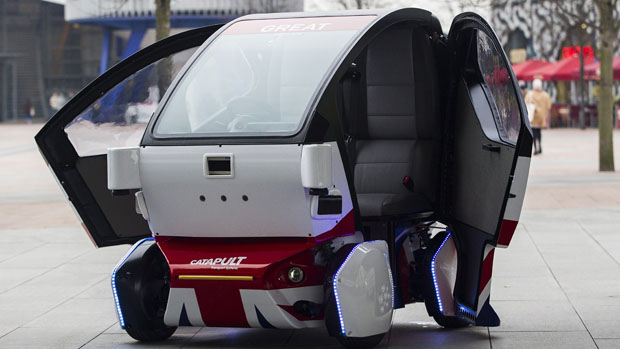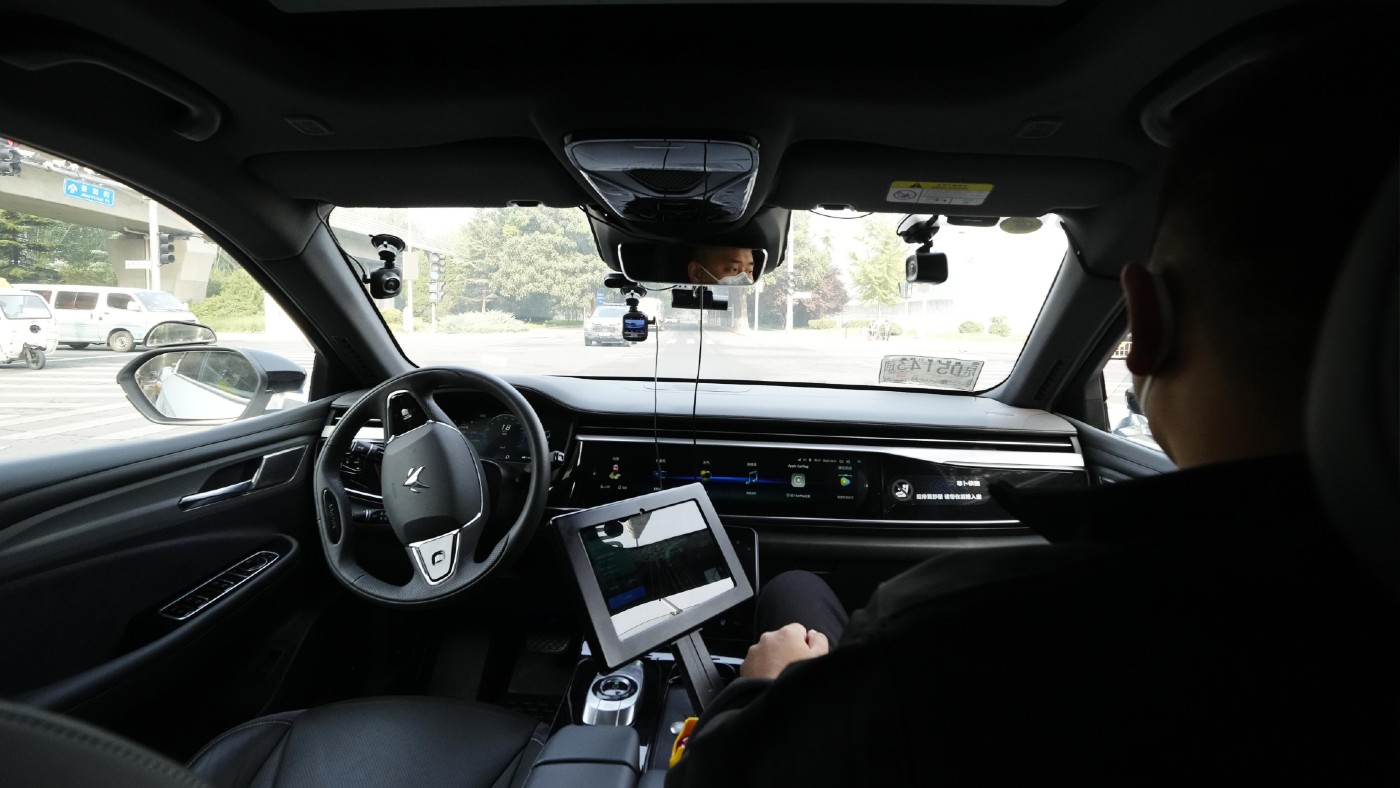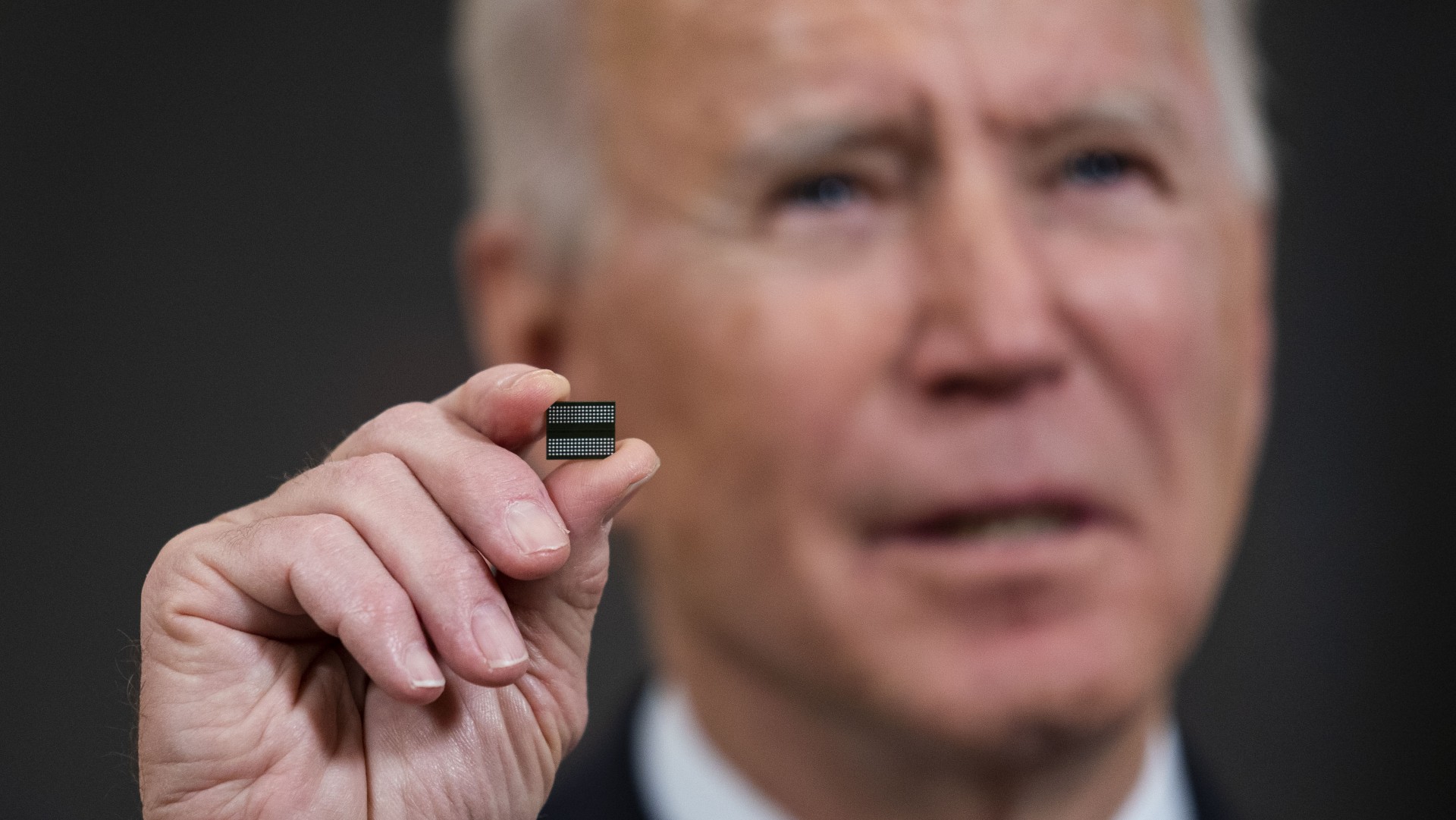Driverless cars: eight obstacles in the way of technology
With problems ranging from tumbleweed to metallic chocolate bar wrappers, the mood on driverless cars is turning sceptical

A free daily email with the biggest news stories of the day – and the best features from TheWeek.com
You are now subscribed
Your newsletter sign-up was successful
It may take much longer than previously thought before vehicles routinely drive themselves on our streets, a worldwide conference on driverless cars has been told. One electronics researcher for Volkswagen pointed out that even tumbleweed presents a major obstacle.
Thomas Form's address to the Los Angeles Connected Car Expo reflected a generally sceptical mood at the event, reports CNBC. And tumbleweed was just one example of problems highlighted at the conference. Among challenges facing driverless cars, Form and other speakers picked out:
Driving conditions
The Week
Escape your echo chamber. Get the facts behind the news, plus analysis from multiple perspectives.

Sign up for The Week's Free Newsletters
From our morning news briefing to a weekly Good News Newsletter, get the best of The Week delivered directly to your inbox.
From our morning news briefing to a weekly Good News Newsletter, get the best of The Week delivered directly to your inbox.
"In sunny weather, everything is fine," said Form, referring to driverless car tests Volkswagen has carried out. But he asked: "Do we have every time, everywhere sunny weather?"
Over-reacting to obstacles
"Our car that drove from San Francisco to Las Vegas would have made a full emergency stop in front of tumbleweed," said Form. Metallic chocolate bar wrappers have also caused driverless cars to panic.
Knowing which threats to ignore
A free daily email with the biggest news stories of the day – and the best features from TheWeek.com
The software can spot obstacles ahead but finds it hard to distinguish dangerous ones, or even which ones are socially acceptable to ignore. Form suggests that human drivers would not stop to avoid hitting a rabbit – but they might for a dog.
Dealing with exceptions
Form points out that police officers often wave cars through red lights, or stop them at green lights. How would a driverless car cope with that situation?
Handing over to a human driver
Pioneering driverless systems work on the principal that a human driver is present and will take over when required. But cars might struggle to give the human driver enough notice when they were needed.
Drivers would need to be skilled
If humans need to take over when the software can no longer cope, they will need to be skilled drivers – as well as being on standby (not asleep, for instance). This negates some of the usefulness of self-driving cars.
Legal challenges
Form said handing control back to a driver could lead to legal challenges if an accident occurs, particularly in the litigious US. Problems with the handover might be regarded as 'forseeable misuse' in US law, he said.
Technical issues
Several speakers raised worries about giving the software controlling the car enough information about the world around it. Brian Droessler of Continental said gathering data about the road further ahead than 300m was challenging.
Driverless cars: UK test hub for self-driving vehicles
20 July
The UK has launched a £20m research and development fund dedicated to testing driverless cars, an industry that is estimated to be worth £900bn by 2025.
The government has launched a competition to develop technologies to allow driverless cars to communicate with one another. The winning entrant will be awarded £20m provided it can match the funding with £20 million of its own money, the Daily Telegraph reports.
Sajid Javid, the Business Secretary, said: "To boost productivity Britain will need to capitalise on new technologies like driverless vehicles, securing high-skilled jobs for those who want to work hard and get on, and contributing to a more prosperous future for the whole of the country.
"Our world beating automotive industry, strengths in innovation and light touch regulatory approach to testing driverless technology combine to make the UK market competitive and an attractive destination for investors."
The government's stance on self-driving cars will be overseen by a new joint policy unit called the Centre for Connected and Autonomous Vehicles (C-CAV).
The fund is part of a £100m commitment to research "intelligent mobility" that was announced last week in the spring budget.
Britain is not the only place where serious investments in driverless vehicles are being made. In the US, Toyota Motor Corp and other companies have pledged to support a $10m (£6.4m) testing ground at the University of Michigan for autonomous vehicles, the Wall Street Journal reports.
Google is also known to be investing heavily in self-driving cars, which it believes will be safer and more efficient than human drivers. Last week, one of the California-based company's test cars was involved in the first injury-causing accident. But, Google claims that the incident was the fault of a human driver who crashed into the prototype car from behind as it was pulling to a safe halt. Google even went as far as to release a video to prove that it was not responsible for the crash.
[[{"type":"media","view_mode":"content_original","fid":"83265","attributes":{"class":"media-image"}}]]
Driverless cars get UK green light, but would you trust them?
11 February
In a move that puts the UK at the forefront of autonomous vehicle testing, driverless cars are set to be trialled on British roads this year.
"These are still early days but today is an important step, " said transport minister Claire Perry. "The trials present a fantastic opportunity for this country to take a lead internationally in the development of this new technology,"
The testing will begin in the summer in a bid to encourage international firms to invest in the technology in Britain, Reuters reports. The cars will be required to have a driver in them who is able to take control if the need arises.
The driverless car industry is expected to be worth £900 million by 2025 and the race to develop them has seen classic car companies such as Daimler competing against technology giant Google.
What are driverless cars?
Driverless cars are classed as vehicles that take on the tasks of steering, accelerating and braking between two points with a minimum of input from a human operator. A variety of autonomous technologies, such as parking assistance, cruise-control and anti-lane drift already exist, but new research from automotive and technological companies around the world is driving the development of cars that can take on more of the tasks of everyday driving.
How do they work?
Driverless cars use a range of different technologies, including Lidar (light detection and ranging), which helps a vehicle position itself in relation to other objects by bouncing lasers off reflective surfaces; "computer vision", which, according to the BBC helps "make sense of 360-degree images"; and global-positioning system (GPS) data from satellites. Together, the technologies allow driverless cars to avoid inanimate objects, evade other vehicles and pedestrians, obey road rules, and respond correctly to road features such as traffic lights and roundabouts.
Which other countries are testing driverless cars?
The US has approved testing of driverless cars in California, Nevada and Florida. Japan ran tests of its own last year on a public highway. In Europe, Gothenburg has been given approval to begin tests in 2017.
Which companies are working on autonomous vehicles?
Currently, Google is working on driverless cars in the United States. Up until recently the tech company was putting its self-driving technology into other manufacturers' vehicles, such as BMW and Audi, but in May, Google announced that it would begin producing cars of its own. According to the BBC, Chinese search firm, Baidu, also recently announced that it had a driverless car in the "early stage of development".
But are they safe?
Although some may be nervous about the idea of autonomous cars driving around, industry experts insist they will be the safest vehicles on our roads.
The vast majority of accidents happen because of human error, a spokesperson from the Society of Motor Manufacturers and Traders told The Guardian. "Computers don't get bored or distracted, or take their eyes off the road because they want to change the radio station or make a phone call," he said.
A study by Google also showed that its driverless cars were proven to be better at keeping a safe distance between vehicles than human drivers could, the Daily Telegraph reports.
How will UK laws need to be adapted?
The Department for Transport says that it has found no legal barrier to testing driverless cars on British roads and has given the project the green light. In June, it released a code of practice for the cars. However, beyond the testing phase, changes to road regulations and car maintenance checks will be needed before driverless cars can be introduced more widely. The DfT has promised to conduct a full review of current legislation before 2017, the BBC reports. It will look at ensuring the cars' safety, amending the Highway Code and MOT regulations, as well as who would be responsible in the event of a crash.
-
 What to know before filing your own taxes for the first time
What to know before filing your own taxes for the first timethe explainer Tackle this financial milestone with confidence
-
 The biggest box office flops of the 21st century
The biggest box office flops of the 21st centuryin depth Unnecessary remakes and turgid, expensive CGI-fests highlight this list of these most notorious box-office losers
-
 The 10 most infamous abductions in modern history
The 10 most infamous abductions in modern historyin depth The taking of Savannah Guthrie’s mother, Nancy, is the latest in a long string of high-profile kidnappings
-
 Are self-driving cars still an impossible dream?
Are self-driving cars still an impossible dream?Talking Point State-of-the-art robot cars still ’struggle’ with construction sites, animals, traffic cones and pedestrian crossings
-
 Why is the US waging a tech war on China?
Why is the US waging a tech war on China?Today's Big Question Battle for technological supremacy is at the forefront of a new economic Cold War
-
 How cybercriminals are hacking into the heart of the US economy
How cybercriminals are hacking into the heart of the US economySpeed Read Ransomware attacks have become a global epidemic, with more than $18.6bn paid in ransoms in 2020
-
 Language-learning apps speak the right lingo for UK subscribers
Language-learning apps speak the right lingo for UK subscribersSpeed Read Locked-down Brits turn to online lessons as a new hobby and way to upskill
-
 Brexit-hobbled Britain ‘still tech powerhouse of Europe’
Brexit-hobbled Britain ‘still tech powerhouse of Europe’Speed Read New research shows that UK start-ups have won more funding than France and Germany combined over past year
-
 Playing Cupid during Covid: Tinder reveals Britain’s top chat-up lines of the year
Playing Cupid during Covid: Tinder reveals Britain’s top chat-up lines of the yearSpeed Read Prince Harry, Meghan Markle and Dominic Cummings among most talked-about celebs on the dating app
-
 Brits sending one less email a day would cut carbon emissions by 16,000 tonnes
Brits sending one less email a day would cut carbon emissions by 16,000 tonnesSpeed Read UK research suggests unnecessary online chatter increases climate change
-
 Reach for the Moon: Nokia and Nasa to build 4G lunar network
Reach for the Moon: Nokia and Nasa to build 4G lunar networkSpeed Read Deal is part of the US space agency’s plan to establish human settlements on the lunar surface